Bees are vital to our food, our ecosystems, and our future. Yet across the UK, bee populations are collapsing due to pesticides, habitat loss, and climate change. Together, we can change this story.
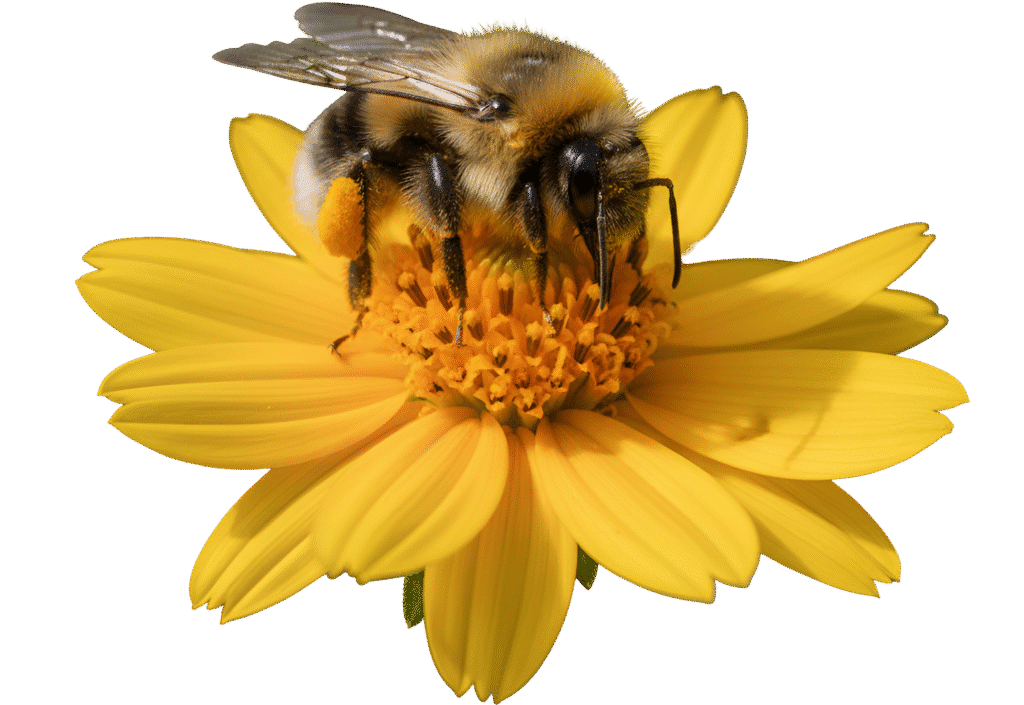
35 species of British bees are under threat of extinction.
97% of wildflower meadows have been lost since WWII.
Pesticides like neonicotinoids are devastating pollinators.
At BritishBees.org, our mission is simple yet urgent: to reverse the devastating decline of Britain’s bees by protecting habitats, creating sanctuaries, and driving positive change through education and action.
We believe that bees are more than pollinators — they are the lifeline of our ecosystems, our food, and our future. Every donation, every project, and every partnership we build is a step toward a world where bees can thrive once again.
BritishBees.org is run by a passionate team of conservationists, scientists, and community volunteers who share one vision: safeguarding pollinators for generations to come.
Together, our team combines scientific expertise, policy advocacy, and grassroots action to create a measurable impact.
When you donate to BritishBees.org, every pound is put to work protecting pollinators and restoring the natural habitats they need to survive. Here’s how your support makes a difference:
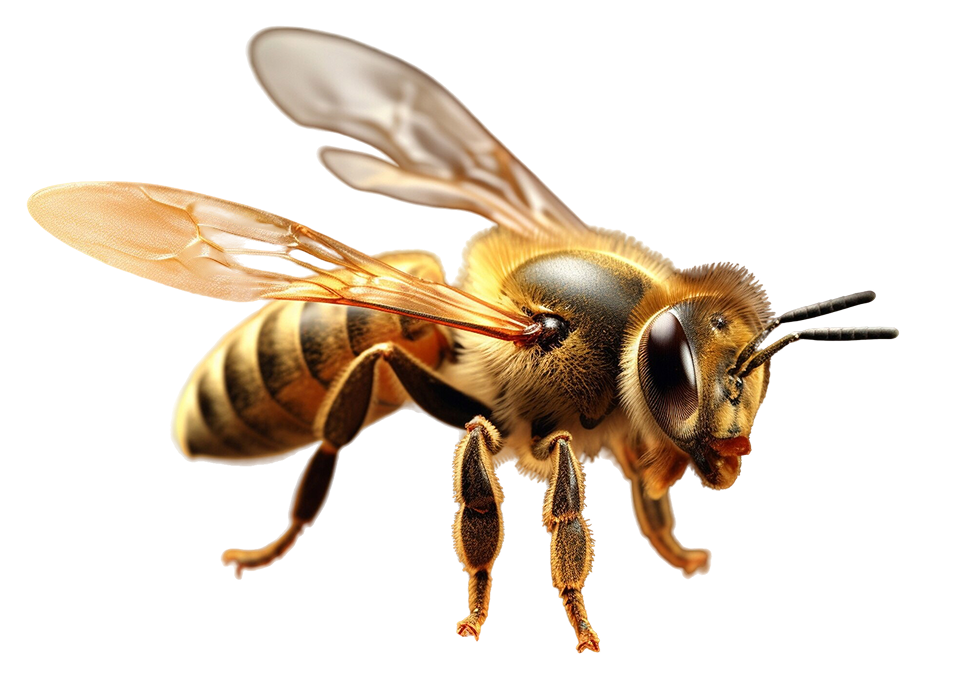
Protect 10 sq. ft. of Bee Sanctuary
Your gift helps us secure and maintain safe, pesticide-free woodland and meadow spaces. These micro-sanctuaries provide nesting areas, wildflowers, and shelter for threatened bee species. Over time, small protected spaces connect to create wildlife corridors that are vital for pollinator survival.

Plant 25 Pollinator Plants
With £25, we can purchase and plant a mix of wildflowers, herbs, and shrubs that provide year-round nectar and pollen. Species include lavender, foxglove, clover, and wild thyme — all essential to bees’ diets. These plantings directly boost food supply and strengthen biodiversity in our sanctuaries.

Sponsor a Beehive for a Community Project
Your support funds the installation and care of a sustainable beehive managed by local volunteers and schools. These hives not only provide safe homes for honeybees but also serve as powerful educational tools, teaching communities about conservation and the importance of pollinators.
The decline of British bees has become a pressing environmental concern, with far-reaching consequences for biodiversity, food security, and traditional rural industries.
Over the past few decades, bee populations across the UK have faced severe threats from habitat loss, pesticide use, climate change, and the spread of diseases such as the Varroa mite.
As vital pollinators, bees are responsible for sustaining much of Britain’s agricultural output, from orchards to food crops to wildflowers and woodland pollination.
Their decline not only jeopardises ecosystems but also undermines the future of honey production, biodiversity loss and the potential for massive problems of food insecurity.
British-made organic honey, once a hallmark of purity and craftsmanship, is now no longer available as made and produced in the UK.
This is mostly because of the overuse of chemical pesticides, which since Brexit has risen dramatically.
Small-scale beekeepers committed to sustainable and chemical-free practices struggle to compete with cheaper imports, while dwindling bee colonies limit local harvests.
The loss of genuine British Organic honey represents more than a reduction in supply ~ it signals the erosion of a cultural tradition rooted in the countryside, as well as a diminishing connection between consumers and their environment.
Safeguarding Britain’s bees requires urgent action: creating pollinator-friendly habitats, supporting organic beekeeping, and reducing pesticide reliance in the farming sector.
Without such measures, the decline of bees and the disappearance of authentic British organic honey could become not just an ecological tragedy, but a cultural and economic one as well.
BritishBees.Org are fighting hard to reverse this catastrophic situation, but we need your help.
Just a small donation of £50 could really make a difference, <Donate Now> or if you have land which you’d like us to maintain, and cultivate bee habitats, we would equally be interested in taking on the management or ownership.

As part of our Bee Conservation Program, we are committed to using vacant and underutilised land to create safe, thriving environments for British bees.
By managing large swathes of woodland, urban farmland, and natural habitats, we provide essential forage and shelter that directly supports dwindling bee populations.
These carefully managed spaces are designed to encourage biodiversity, planting nectar-rich wildflowers and maintaining pesticide-free environments where bees can flourish.
Vacant land presents a vital opportunity: what might otherwise remain unused or neglected can instead become a sanctuary for pollinators, contributing to the recovery of British bee numbers. Whether in rural woodlands or pockets of urban green space, our program works to restore balance to fragile ecosystems while supporting sustainable honey production.
Through active land management, we help strengthen bee colonies, improve pollination rates, and ensure the long-term survival of one of Britain’s most important species. In turn, this benefits not only the bees themselves but also the wider natural world and food systems that depend on them.
By working with us, landowners and communities can transform unused land into thriving habitats, making a lasting contribution to the protection of British bees and the future of organic honey.
Do you have land to donate? Or would you like to find out more about our land-management program?

Donate Land for Bee Conservation
Our British Bees Conservation Program is dedicated to restoring and protecting the natural habitats our pollinators depend on. One of the most effective ways to support this mission is through woodland and land donation. Whether you have rural fields, urban green spaces, or unused woodland, your land can play a crucial role in reversing the decline of British bees.
We specialise in taking on spare land, managing it sustainably, and transforming it into thriving natural habitats. By planting nectar-rich wildflowers, reducing chemical impact, and maintaining balanced ecosystems, we create safe environments where bees can flourish. From small urban plots to large woodland areas, every piece of land can make a difference.
Industrial farming and the heavy use of pesticides have stripped away much of the bees’ natural habitat. Together, we can restore these vital spaces, protect biodiversity, and ensure the future of pollinators that our food systems and ecosystems depend on.
If you have land you’d like us to manage and restore, we’d love to hear from you. Join us in creating a legacy of conservation and sustainability.

Bees are not only vital to our countryside—they are just as important in our cities. Urban environments, especially places like London, can provide essential opportunities for pollinators if we create the right conditions. Recognising the urgent need to protect dwindling bee populations, we have developed a dedicated rooftop bee conservation program to ensure bees can thrive in the heart of the city.
Working closely with green roof contractors, we design and install living rooftops filled with carefully chosen plants, shrubs, and wildflowers that provide nectar and shelter for urban bees. These green havens not only protect pollinators but also bring wider benefits, improving air quality, cooling city buildings, and supporting biodiversity in built-up areas. In many cases, rooftop colonies can even support honey production, reconnecting businesses and communities with a natural, sustainable resource.
Protecting urban bees is about more than conservation—it’s about recognising our responsibility to safeguard the species that sustain our food chain and ecosystems. Every rooftop offers a chance to make a difference.
Talk to us today about installing a bee preservation program on top of your company roof, and be part of a greener, more sustainable future for our cities and our bees.
our office roof has the potential to become a thriving hub for bee conservation and sustainable living. Through our tailored rooftop systems, we can install bee hives, living roof gardens, and green wall structures that not only protect large colonies of wild bees but also bring your building to life.
Bees play a vital role in fertilising plants, ensuring that living roofs and green walls remain healthy, vibrant, and self-sustaining. By introducing colonies to these spaces, we create a cycle of growth where plants support the bees, and bees in turn maintain the plants. This harmony strengthens biodiversity while making your building greener, cleaner, and more sustainable.
What makes this program even more exciting is the potential for honey production. Our rooftop hives can generate rich, organic wild honey directly from your building—an environmentally friendly product that can be used, gifted, or even sold by the property owner.
By investing in a rooftop bee conservation system, you’re not only protecting pollinators but also transforming unused space into a productive, eco-friendly asset.
Contact us today to find out how your office roof can support bees, enhance sustainability, and produce wild honey.

Raw Organic Honey – Pure, unprocessed honey straight from our sanctuaries.
Beeswax Candles – Natural, toxin-free candles with a light honey aroma.
Propolis & Pollen – Known for their immune-boosting benefits.
Reusable Tote Bags with bee-themed designs.
Bee Mugs & Bottles – Fun, eco-conscious drinkware.
Bee T-Shirts & Hoodies – Spread awareness with every wear.
Wildflower Seed Packs – Grow your own pollinator-friendly garden.
Bee Hotels – Handmade shelters for solitary bees.
Pollinator Plant Kits – Starter packs with seasonal plants.
Every donation earns you Bee Points – redeemable in our Bee Shop for eco-friendly products like seed packs, mugs, and wildflower kits. It’s our way of saying thank you for making a difference.

I scattered these seeds in my garden last spring and by summer it was full of colour and buzzing with bees! Such a simple way to make a difference.
Emma R., Kent
Wildflower Seed Packs

I scattered these seeds in my garden last spring and by summer it was full of colour and buzzing with bees! Such a simple way to make a difference.
Emma R., Kent
Wildflower Seed Packs

I scattered these seeds in my garden last spring and by summer it was full of colour and buzzing with bees! Such a simple way to make a difference.
Emma R., Kent
Wildflower Seed Packs
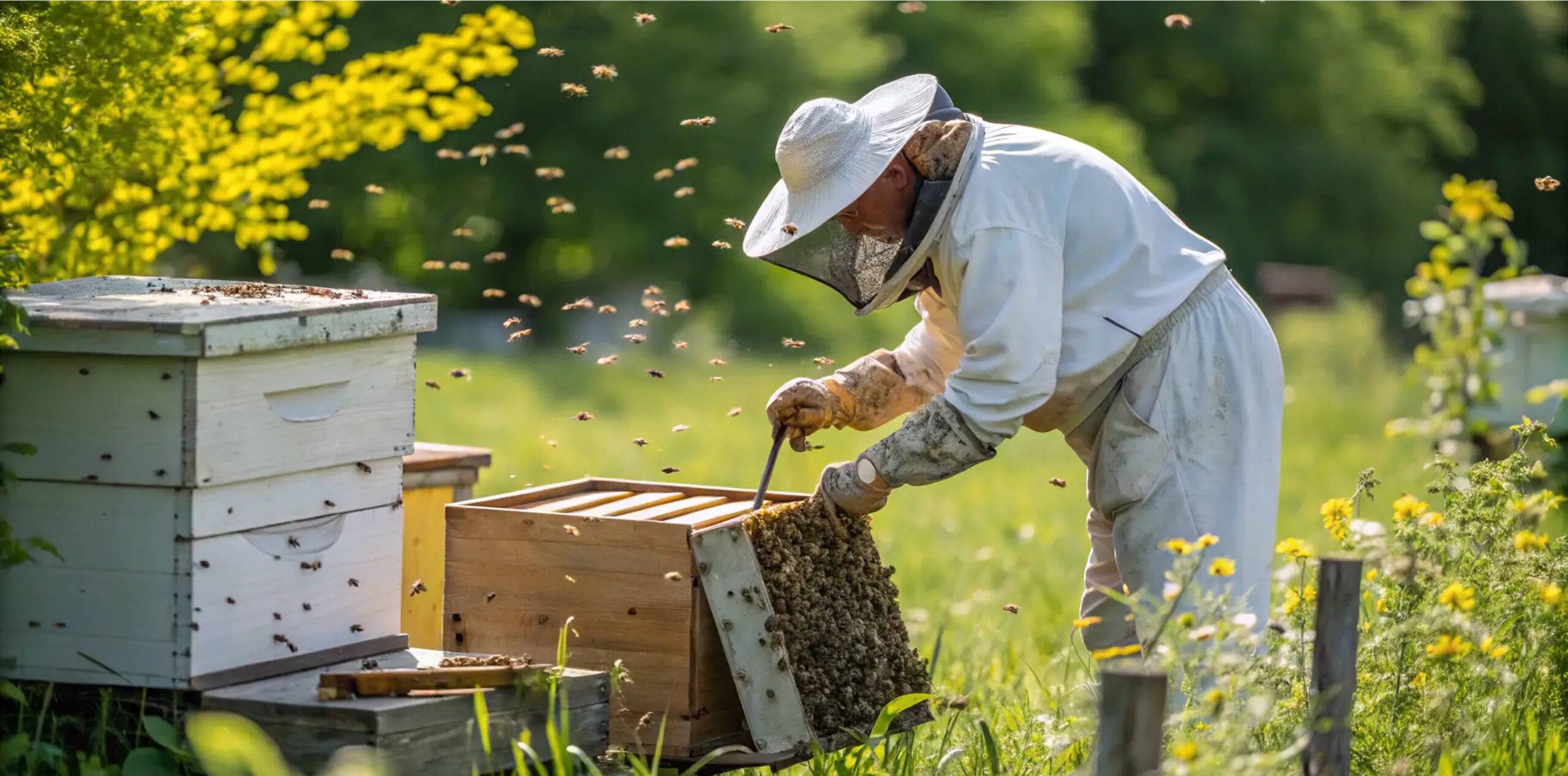
Your office roof has the potential to become a thriving hub for bee conservation and sustainable living. Through our tailored rooftop systems, we can install bee hives, living roof gardens, and green wall structures that not only protect large colonies of wild bees but also bring your building to life.
Bees play a vital role in fertilising plants, ensuring that living roofs and green walls remain healthy, vibrant, and self-sustaining. By introducing colonies to these spaces, we create a cycle of growth where plants support the bees, and bees in turn maintain the plants. This harmony strengthens biodiversity while making your building greener, cleaner, and more sustainable.
What makes this program even more exciting is the potential for honey production. Our rooftop hives can generate rich, organic wild honey directly from your building—an environmentally friendly product that can be used, gifted, or even sold by the property owner.
By investing in a rooftop bee conservation system, you’re not only protecting pollinators but also transforming unused space into a productive, eco-friendly asset.
Contact us today to find out how your office roof can support bees, enhance sustainability, and produce wild honey.
The rapid decline of bees and other pollinators is not the result of a single threat, but rather a dangerous synergy of multiple pressures that compound one another. While each factor is significant on its own, it is their interaction that creates an especially lethal cocktail for these essential creatures.
The most direct threats are habitat loss and the pervasive use of pesticides. The intensification of agriculture has led to the destruction of wildflower meadows, hedgerows, and other natural spaces, creating “green deserts” where pollinators cannot find sufficient food or nesting sites. This loss of habitat is dramatically exacerbated by pesticides. Insecticides, particularly neonicotinoids, are systemic, meaning they are absorbed by the entire plant, including its pollen and nectar. Even at sublethal doses, these chemicals can act as nerve agents, impairing navigation, reducing foraging efficiency, and weakening immune systems, making bees more vulnerable to disease. Herbicides also play a destructive role by eliminating the flowering “weeds” that are critical food sources for many pollinator species.
Compounding these issues is the mounting pressure of climate change. Rising temperatures, shifting seasonal patterns, and more frequent extreme weather events create a mismatch between the life cycles of pollinators and the plants they depend on. A bee may emerge from hibernation only to find that the flowers it needs have already bloomed and wilted. Climate change also alters the distribution of diseases and parasites, such as the Varroa mite, which devastates honeybee colonies. Furthermore, it pushes species towards cooler climates, but if they cannot migrate fast enough or if their new habitat is fragmented by human development, they face local extinction.
Ultimately, it is the interplay of these factors that drives the most rapid declines. A bee weakened by pesticide exposure is less able to cope with the nutritional stress of a flower-scarce landscape. A population already fragmented by habitat loss has less resilience to withstand a new disease or a climate-related weather shock. Pesticides, climate change, habitat loss, and disease are not separate problems; they are interconnected forces that collectively degrade the environment, making it increasingly inhospitable for the pollinators that are fundamental to healthy ecosystems and our own food security.
Britain is home to a remarkably diverse array of pollinators, far beyond the familiar honeybee. In fact, while the managed Western Honey Bee (Apis mellifera) is a vital pollinator, it is just one of over 270 species of bee found in the UK. These are broadly split into three groups:
*bumblebees* (around 24 species), *solitary bees* (over 200 species, such as mason bees, mining bees, and leafcutter bees), and the aforementioned honeybees. Beyond bees, other crucial pollinators include various species of hoverflies (which mimic bees and wasps), butterflies, moths, and even some beetles.
Each plays a unique role; for example, the long tongues of some bumblebees allow them to pollinate deep flowers like foxgloves, while the buzzing vibration of others is essential for releasing pollen from plants like tomatoes.
The threat of extinction caused by the overuse of pesticides, particularly a class known as neonicotinoids, does not affect all pollinators equally.
While honeybee hives are often monitored and can be moved away from harmful sprays, wild pollinators are far more vulnerable. Among the most at-risk groups are the *specialist solitary bees* and certain *bumblebee species. For instance, the **Willow Mining Bee* (Andrena clarkella), which relies almost exclusively on willow trees for pollen, is highly susceptible if its specific habitat is contaminated. Similarly, the *Large Garden Bumblebee* (Bombus ruderatus), a species already struggling with habitat loss, faces a double threat from pesticides that can weaken its colonies and reduce its reproductive success.
The danger of pesticides is often indirect and sublethal. They may not always cause immediate death but can impair a bee’s navigation, making it unable to return to its nest, weaken its immune system, and reduce its foraging efficiency.
This is particularly devastating for solitary bees, where a single female is responsible for an entire nest’s success.
Among the most critically endangered is the *Great Yellow Bumblebee* (Bombus distinguendus), now confined to the Scottish islands and coasts.
For such a rare species with a fragmented population, even a small dose of pesticide affecting its limited foraging grounds could have catastrophic consequences for its survival.
Ultimately, the overuse of pesticides creates a toxic landscape that exacerbates the existing pressures of habitat loss and climate change, pushing our most vulnerable and specialised pollinators towards extinction.
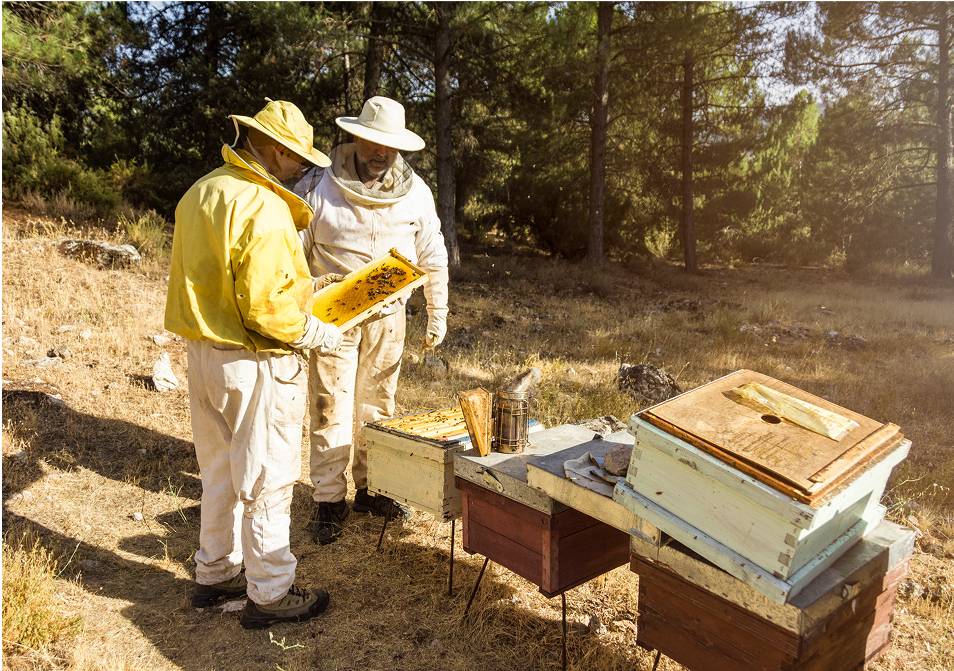
BritishBees.org is currently engaged in a vital mission to secure and restore a sprawling 10-acre woodland nestled near Godalming, Surrey, transforming it into
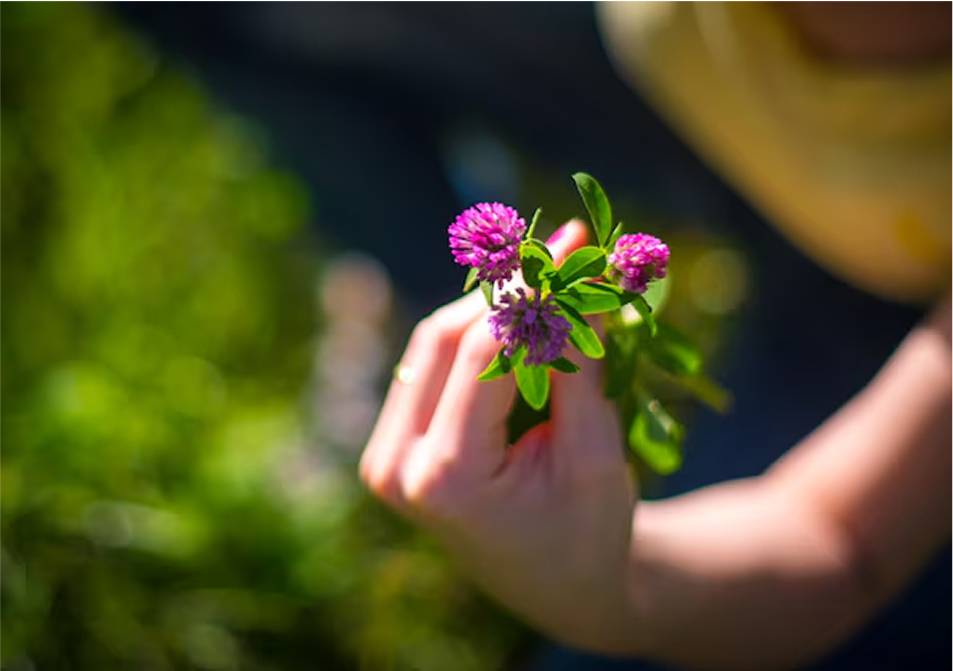
Across our existing network of sanctuaries, BritishBees.org has already achieved significant milestones in habitat creation, demonstrating a clear roadmap for the Surrey woodland.

Our team has also been busy in the classroom. We have held free workshops in local schools to teach children about pollinators and
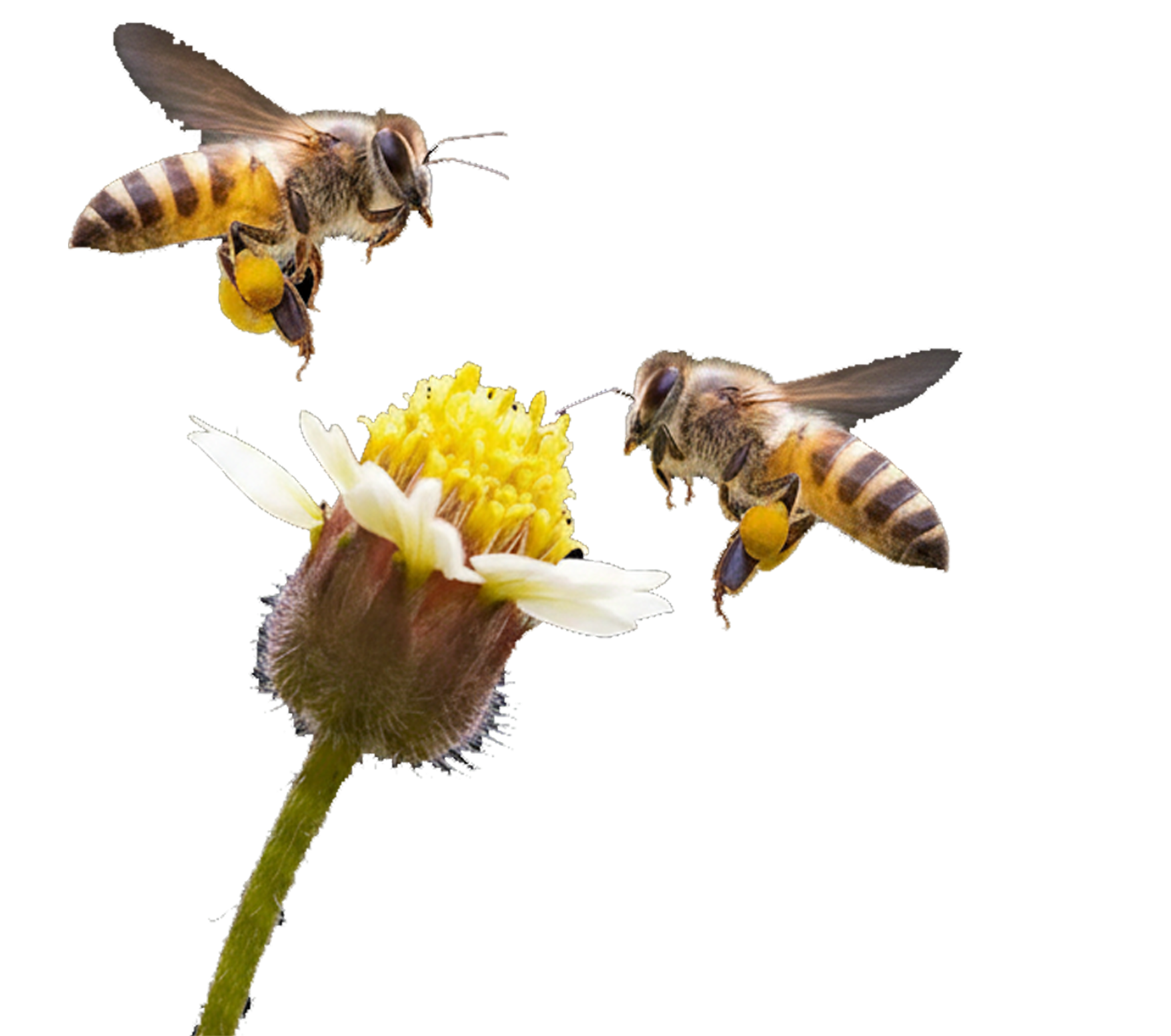
We’d love to hear from you! Whether you have questions about our bee conservation projects, want to get involved, or simply wish to say hello, our team is here for you.